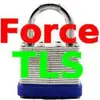
HTTPS Everywhere
HTTPS Everywhere is a free and open-source software browser extension available for Mozilla Firefox, Google Chrome, Opera, and Chromium. It encrypts the user’s communications with many major websites, making browsing more secure. It is developed as a collaboration between The Tor Project and the Electronic Frontier Foundation. It encrypts the user’s communications with many major websites. It is an example of the HTTPS everywhere concept. It is a free and open-source browser extension that encrypts your communications with many major websites, making your browsing more secure.
It encrypts the links that you click on in your browser. There are now 1,478 sites supporting HTTPS encryption, including Facebook, Google, Twitter, Pinterest, Wikipedia, and Dropbox. With the EFF key, you can use HTTPS Everywhere to encrypt your communications with any of these sites. It is a free browser extension for the Firefox and Chrome web browsers that encrypts your communications with many major websites (Google, Facebook, Twitter, etc.) to make your browsing more secure.
HTTPS Everywhere Alternatives
#1 KB SSL Enforcer

KB SSL Enforcer is a browser extension that displays a visual indicator on the website’s address bar. The purpose of this software is to allow users to detect, at a glance, if their connection is encrypted or not when accessing a website. It is a free and open-source project; therefore, everyone is invited to contribute by forking the repository and improving the code. Bug reports and feature requests are welcome too and should be reported using the “GitHub Issues” tab of this repository.
The extension will only work after you have installed it from the “Chrome Web Store.” It is an extension that allows users to detect and avoid man-in-the-middle attacks on sites with weak SSL crypto. It is a social network for the cryptographic Web. It’s easy to accidentally log in and exposes your password. It is a Chrome extension that warns users when they are about to enter a non-secure website. It is the first of its kind.
#2 Smart HTTPS
Smart HTTPS is a free and open-source browser extension that helps you stay safe on the Web by enabling HTTPS encryption on all your favorite sites. It ensures that the content of your communications with a website is encrypted and cannot be viewed by anyone with access to the network between your computer and the server, e.g., hackers, ISPs, or governments. It encrypts your communications with a number of major websites, making your browsing more secure.
It’s a free and open-source browser extension for Firefox and Chrome, created with the aim of increasing user awareness of HTTP security. It also contains an article that summarizes the importance of HTTPS, as well as a page where you can try the extension and find out more about what it does. It is the easiest way to add an additional layer of security when you browse the Web. It automatically makes web pages served via the HTTPS protocol more secure by encrypting and authenticating both requests and page content.
#3 The Tor Browser
The Tor Browser is free software that helps you defend against tracking, account hacking, and surveillance on the Web. It’s the only major browser with built-in protection against tracking while also protecting your privacy. It is the most popular internet browser for people who need online privacy and anonymity. It was developed by The Tor Project and is a fork of Mozilla Firefox ESR. It automatically sets up a private, secure connection to the internet using Tor.
With this solution, you can anonymously read websites, instant message on IRC, and send email encrypted to yourself, among other things. It browses the Web without trackers or advertisements. It connects to the internet via a proxy. Browse, post, and download media with fewer worries. It protects you from fraud, viruses, and malware. It’s easy to share your interactions using the built-in share features. You can use it from any modern browser without needing to install anything else.
#4 HTTPZ
HTTPZ is a cross-platform browser extension for Firefox, Google Chrome, and other Chromium browsers, released under the Affero GPL license. It’s available for Windows, Mac OS X, Linux, Android, and iOS (not in the official app store). It automatically redirects any HTTP request that contains a “Referer” request header to HTTPS (“HTTP Strict Transport Security” or “HTTP Secure”), with some exceptions. You can add custom domains or whole websites to the whitelist in the options settings.
It’s a very early version of what will be a much larger project. It’s a completely different tool – more powerful in some ways but less so in others. You can record your interactions; play them back whenever you want, including on different websites. You don’t need to worry about installing anything extra or going to the website you’re interacting with beforehand. It doesn’t require any plugins or browser add-ons to work. It allows you to record, replay and share HTTP interactions with others.
#5 ForceHTTPS

ForceHTTPS is a free and open-source browser extension for Google Chrome. It allows you to view the HTTP version of a website as well. The extension’s code and instructions for auto-updating can be found on GitHub. It was originally created in order to let users easily see which domains are not properly utilizing HTTPS so that they can take action on their own. It uses a man-in-the-middle approach to ensure that all HTTP traffic is converted to HTTPS when the browser makes a request through the tool.
This approach is safe and can be used while browsing any website. However, it’s important to note that force HTTPS will not work with any websites where HTTPS is not available by default. It is the easiest way to add an additional layer of security when you browse the Web. It automatically makes web pages served via the HTTPS protocol more secure by encrypting and authenticating both requests and page content.
#6 SSL Enforcer
SSL Enforcer is a free, open-source browser extension that helps you identify sites that don’t support HTTPS encryption. It is available for all major browsers, including Chrome, Firefox, Opera, Safari, and Microsoft Edge. It scans the URL bar of your browser to check if the current page that you are visiting is available over HTTPS or not. You can also hover over any of these icons to get additional information about the redirection.
The icon shows that a site was found that redirects to HTTP, and the icon shows a green padlock indicating a secure connection. It shows that all content on a site is loaded through HTTPS, and there is no redirection to HTTP. It is an Open Source browser extension designed to warn users against fraudulent SSL Certificates. It warns when a web server presents an SSL certificate but doesn’t operate under the expected name and will help users detect man-in-the-middle attacks launched by hackers.
#7 HTTPS Now
HTTPS Now is a free and open-source browser extension for Mozilla Firefox and Google Chrome that makes it easy for you to shop on the Web. It is a powerful technology that protects connections between two computers from eavesdropping and man-in-the-middle attacks. It is a browser extension for Chromium-based browsers that attempts to make your browsing experience secure and protect your privacy. HTTPS Now is open-source and audited by experts from the University of Michigan.
It is based on the concept outlined by Qualys SSL Labs and Score-On-Security. The extension examines SSL/TLS configuration parameters such as cipher choice, presence of OCSP stapling, certificate revocation, etc., and provides an overall grade for the level of security offered by the webserver. It is a browser extension that enables HTTPS on websites that have moved to HTTPS. It is the easiest way to add an additional layer of security when you browse the Web.
#8 HTTP Nowhere

HTTP Nowhere is a simple browser extension to prevent third parties from tracking your web activity. It is a free and open-source browser extension that helps protect your privacy by blocking third-party requests. As you browse the Web, it intercepts and blocks requests to domains that appear to be tracking users. It shows you, in real-time, how many tracking requests are blocked and which domains are blocked—and gives you the tools you need to customize your privacy protection.
It’s a tool that allows you to hide your requests from the companies that try to track you. It is a browser extension for Mozilla Firefox and Google Chrome that disables HTTP requests entirely, allowing users to browse the Web with an always-on-SSL connection. This is a way to browse the Web privately, even at public Wifi hotspots, while also blocking referral-tracking and any other kind of data collection.
#9 ForceTLS
ForceTLS is a browser extension that aims to protect users from the pervasive monitoring and censorship routinely practiced by governments and ISPs. It does so by enabling the use of HTTPS for connections where the website does not offer it natively, for example, if it only offers HTTP. It is an extension for Firefox, Chrome, and Opera that encrypts your communications with many major web services, making your browsing more secure. It is a free and open-source browser extension that encrypts your communications with many major web services, making your browsing more secure.
It was developed as a collaboration between The Tor Project and the Electronic Frontier Foundation. It is a browser extension that enables HTTPS on websites that have moved to HTTPS. It is the easiest way to add an additional layer of security when you browse the Web. It automatically makes web pages served via the HTTPS protocol more secure by encrypting and authenticating both requests and page content.
#10 HTTPS Always
HTTPS Always is a free and open-source software browser extension. It is a free and open-source browser extension that converts your communications with many major web services, making you’re browsing more secure. It was developed as a collaboration between The Tor Project and the Electronic Frontier Foundation. It is a browser extension that allows HTTPS on websites that have moved to HTTPS.
The icon shows that a site was found that redirects to HTTP, and the icon shows a green padlock indicating a secure connection. It shows that all content on a site is loaded through HTTPS, and there is no redirection to HTTP. It uses a man-in-the-middle approach to ensure that all HTTP traffic is converted to HTTPS when the browser makes a request through the tool. This approach is safe and can be used while browsing any website. It has an intuitive and user-friendly interface.











